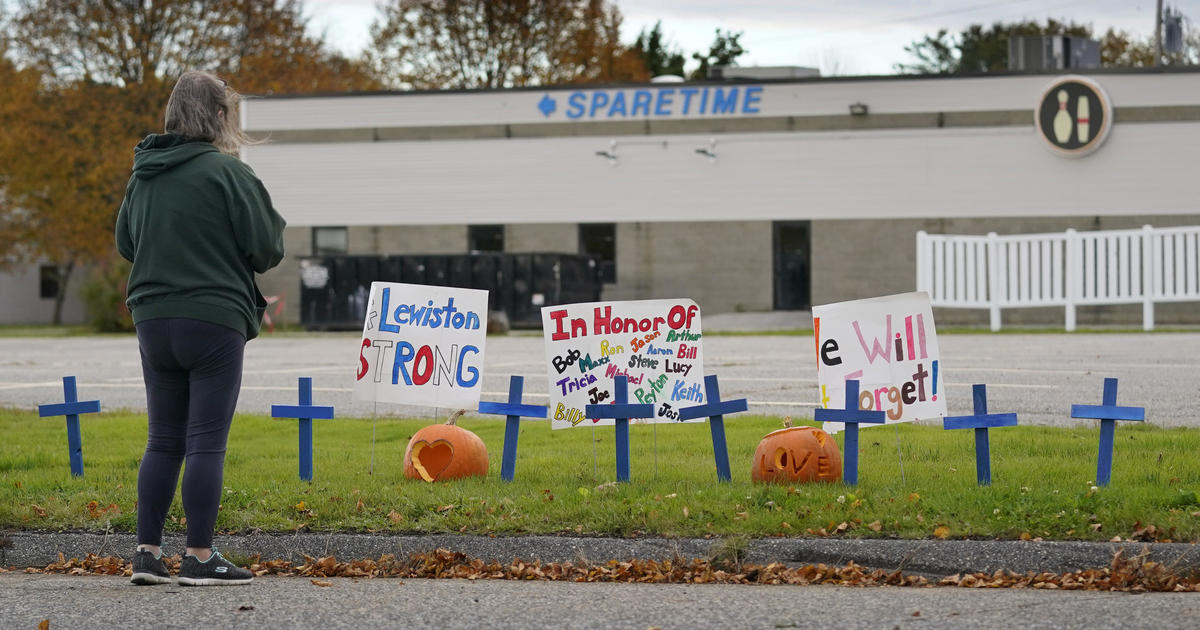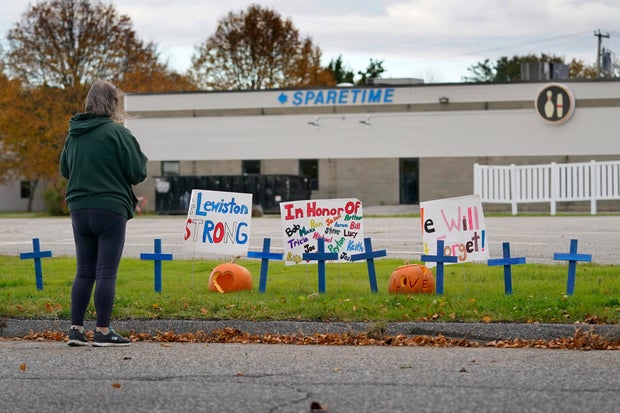Lewiston, Maine — With flags lowered across the state, Maine residents whose sense of safety was shattered last year by the deadliest mass shooting in the state’s history planned to mark the day Friday in ways big and small, including a planned memorial service.
The killings of 18 people by an Army reservist in Lewiston drove home the stark reality that no corner of the country is safe from gun violence, including a state where people often boast of the low crime rate.
The largest of the gatherings was expected at the city’s hockey arena, where there were to be moments of silence at the time of the shootings.
Community has emerged as an important component of the grieving process since the shootings, Elizabeth Seal said through a sign language interpreter at an event with victims and survivors last week. Seal’s husband, Joshua Seal, was killed in the shootings.
“Once justice is served, I feel maybe we can start that process of healing,” Seal said through the interpreter. “But in the meantime, we’re going to stay ‘Lewiston Strong.'”
Robert F. Bukaty / AP
Seal and dozens of other survivors and relatives of victims recently began the formal process of suing the U.S. Army for what they say was a failure to act to stop the 40-year-old reservist, Robert Card.
The shootings on Oct. 25, 2023, happened at a bowling alley and a cornhole tournament hosted by a bar and grill. Card died by suicide, and his body was found two days later.
Justin Juray, owner of the Just-In-Time Recreation bowling alley where the shooting began, said the venue would close for the day Friday to let staff be with their families. He said it had been a tough week as the day approached, and Friday would be particularly hard.
“We don’t need work to add to their stress,” he said. Juray and his wife, Samantha, reopened the bowling alley in May, six months after the shooting. Two staff members were among the eight people killed there.
All told, more than 130 people were present at the two sites, according to the state’s director of victim services. In addition to the 18 killed, there were 13 wounded by gunfire and 20 non-shooting injuries.
The gunman’s family and fellow Army reservists reported that he was suffering from a mental breakdown.
In the aftermath of the shooting, the Maine Legislature passed new gun laws that bolstered the state’s “yellow flag” statute, criminalized the transfer of guns to prohibited people and expanded funding for mental health crisis care.
Democratic Gov. Janet Mills said the healing isn’t over.
“As we continue down the long and difficult road to recovery, let us remind ourselves that we are not alone, that we are ‘Lewiston Strong,’ and that we will continue to heal, together,” she said.
“Lewiston Strong” took off in the days following the tragedy and continues to inspire, reports CBS Portland, Maine affiliate WGME-TV.
The Maine People’s Alliance has kept up its “Lewiston Strong” sign, a constant reminder that’s led to contemplation.
“What does it mean anyway and what comes next after you’ve declared yourself to be strong?” asked the alliance’s Carrie Jadud.
“How do we be strong for each other and for ourselves? But more importantly, how are we healing, healing ourselves, healing each other, healing as a community?” Jadud reflected.


